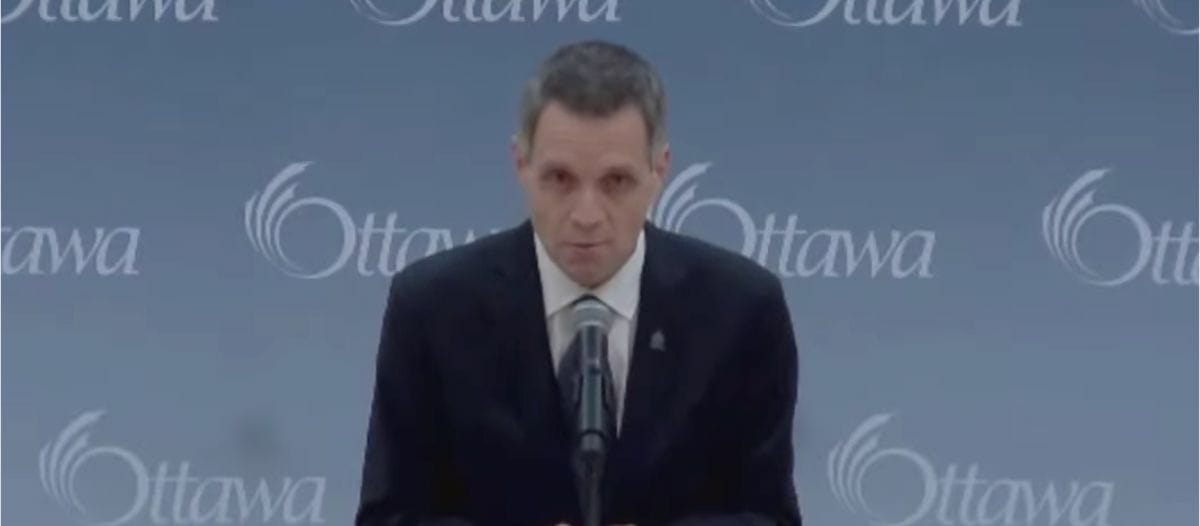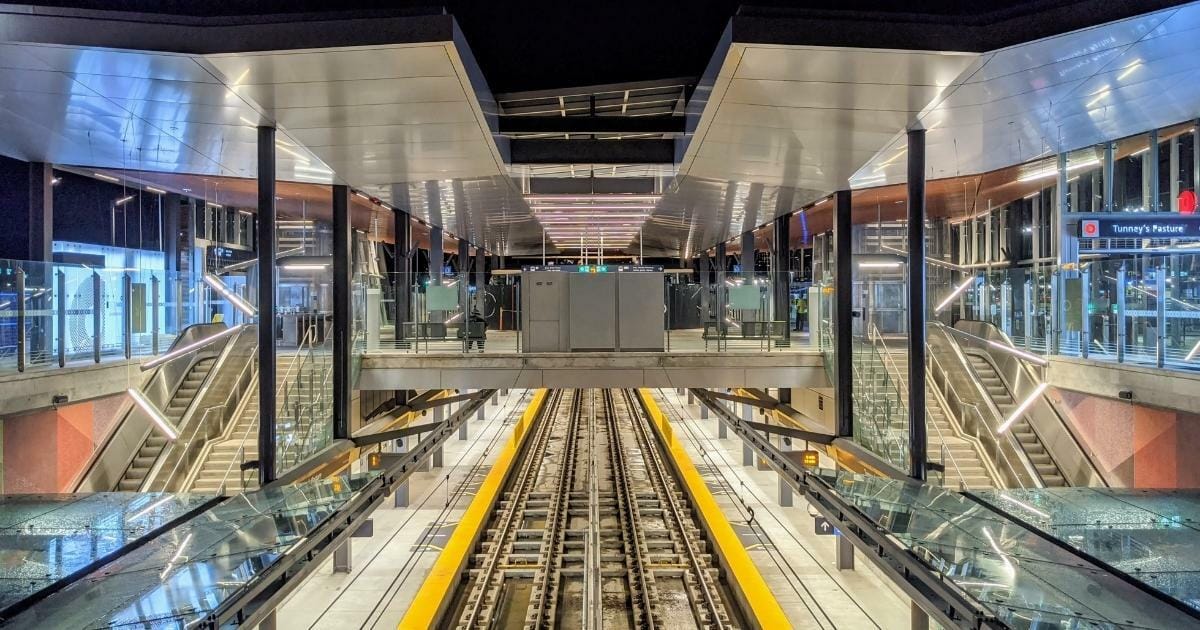What happened: The LRT inquiry report was released Wednesday, and it paints a devastating picture. The LRT was opened before it was ready, and everyone involved knew it.
The inquiry’s commissioner, Justice William Hourigan, identified two overarching failings in the LRT project:
Rideau Transit Group gave deadlines for completion it knew were false, and
City officials — including former mayor Jim Watson — did not tell council or the public the truth about the state of the trains.
Many problems: Beyond the two major themes, Hourigan found numerous problems with LRT project:
The city chose trains that were never used before, and built a system that pushed the limits of typical LRT systems;
RTG did a poor job overseeing its subcontractors;
The system was rushed into service for political reasons;
The testing criteria was changed mid-testing to ensure the trains passed, despite many problems;
And RTG and the city developed an adversarial relationship, leading to more problems.
The commissioner’s assessment: “While human errors are understandable and expected, deliberate malfeasance is unacceptable in a public project. When participants deliberately mislead the public regarding the status of a public undertaking, they violate a fundamental obligation that underlies all public endeavours. The public rightly trusts both the government and private-sector entities to act in a manner that furthers the broader public interest,” Hourigan said in the report.
Dig deeper: Ten takeaways from the Ottawa LRT inquiry final report [CTV]
The people at fault: Hourigan lays much of the blame for the poor quality of the LRT on senior city officials, including former mayor Jim Watson, former city manager Steve Kanellakos, former OC Transpo head John Manconi, and former transit commission head Coun. Allan Hubley.
Their rush to push the train line into service, and their unwillingness to be truthful with the public all contributed to the system’s failures.
Kanellakos abruptly resigned Monday, while Manconi left the city for the private sector last year. Watson did not run for re-election. Only Hubley remains.
They all shared WhatsApp group where they got timely updates about the progress of testing the trains, and how badly it was going — information they deliberately withheld from council and the wider public. The report calls out each of them for either misleading council, or choosing not to correct the record once council had been misled.
“Without changes to the information-sharing process and a fundamental shift in the approach of senior city staff, the statutory oversight function of council will be irreparably compromised,”
Reaction from around the city
Reaction: Former councillor Diane Deans said former mayor Jim Watson should make a public apology. She also said Coun. Allan Hubley, the former Transit commission chair, should resign from council for his role in the LRT fiasco, CBC reported. Hubley was one of the few people who were part of the WhatsApp group where critical decisions about the LRT were made, particularly during testing.
"I don't know how [he] could sit at the council table and make decisions about the future of this city when there could be no public confidence left in him whatsoever," Deans told the broadcaster.
From the premier: "I think they did a terrible job. Mayor Watson — I'm being very frank here — he wasn't transparent, he didn't oversee the project properly," Premier Doug Ford said, according to CBC. "He's gone, and so is the city manager and some other people that worked on it. [They] high-tailed out of there because they knew it was a disaster."
From the new mayor: “I understand the frustration and disappointment of so many Ottawa residents,” Mayor Mark Sutcliffe said, according to CTV. “Frankly, I share their disappointment.” He said he has instructed staff to come up with an action plan to implement the report’s recommendations.
Dig deeper: What happens next will define Sutcliffe's term as Ottawa mayor [Ottawa Citizen]
From the old mayor: Former mayor Jim Watson has yet to speak about the report and his central role in the problems with the LRT, as he is on vacation.
From RTG: “We acknowledge that all parties, including RTG and its subcontractors, have work to do to restore the public’s confidence in the city’s light rail system. That work starts with a renewed commitment to working together on a path forward in the spirit of partnership required of all of us,” the consortium said, the Ottawa Citizen reported.
What the inquiry report recommends
Recommendations: The inquiry made 103 recommendations for how to improve the LRT, and prevent similar problems arising in the future. We won’t go through all 103 of them, but here are four of the key recommendations the inquiry highlighted in its press release:
Collaboration and the public interest should be at the heart of the relationship between city and its and private-sector partners;
Reliability and safety issues must be honestly identified and communicated to project partners and the public:
Trial testing requirements should be detailed in the relevant contracts;
And prior to public opening, there should be an extensive running of the entire system under conditions designed to mirror those of public service.
Watching progress: The report also recommends hiring a third-party overseer to report directly to either the transit commission or council as a whole because of city staff’s lack of honesty. This points to a deeper problem at city hall. The problems with the LRT project are part of a culture of secrecy within the bureaucracy that persisted even during the inquiry itself:
“Is there any reason to believe that their conduct regarding the trial running testing results was an aberration or that transparency has improved within the city? Unfortunately, based on the city’s conduct during this inquiry, there is not,” Hourigan wrote. “Throughout the hearings, the city published, at taxpayers’ expense, a summary of the proceedings that was a blatant attempt to spin the testimony in a way that was favourable to the city.”
Still to do: There are still “critical” safety issues that need to be addressed. There were temporary fixes to how the wheels and rails interact, which is thought to be the cause of the first derailment. But there has been no permanent fix, the report said according to the Ottawa Citizen.
In conclusion: Hourigan said there is definite sign for optimism, as both RTG and the city now seem to be working better together. But, he warned the system is not out of the woods yet. “Until such time as the private and public entities involved in the OLRT1 project understand that their first obligation is to the public, there is reason to be concerned that the project will continue to suffer problems,” he said.





